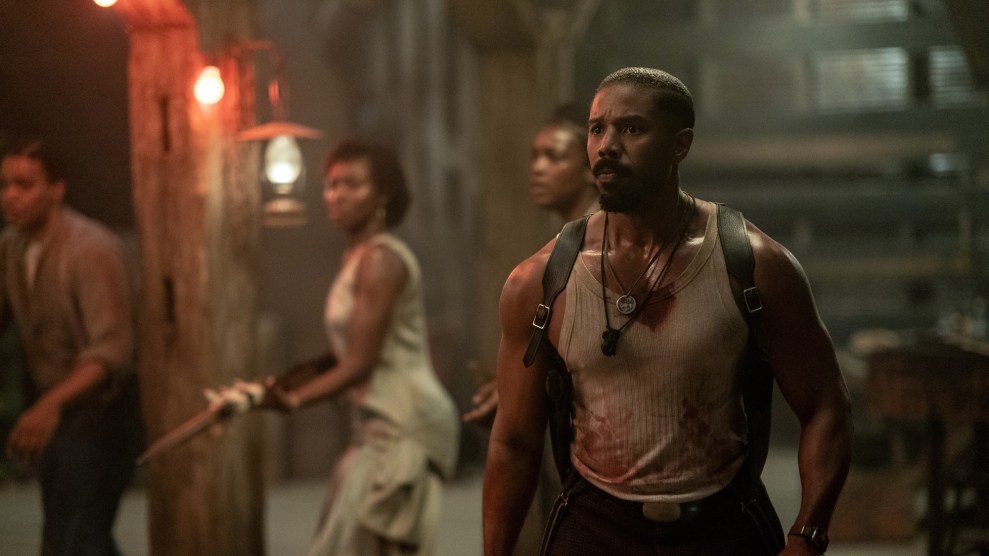Minutes after news of the mass shooting in Uvalde broke, I went to pick up my child from school. The yard was full of kids playing, and I tried to look cheerful and untroubled as I watched him grab his backpack and run toward me. I thought about the parents, grandparents, siblings, aunts, and uncles who were expecting to greet their kids at the end of this day, only to learn that they would never do that again.
Because of a gun. Because of so many guns, in so many hands, including so many of the wrong hands.
But this is not a story about guns, or even about this latest horrific news. You’ve already heard all about that. Maybe you’ve been glued to your Twitter feed or cable TV, watching as people you agreed with, or not, argued about what should happen now. Maybe you felt despair as you processed this awful news on top of so much other awful news. Maybe you prayed.
This isn’t a story to tell you what to do. It’s not to fuel your outrage or sadness, or to offer an insta-fix. There are plenty of people who want you to sign petitions and donate to causes right now, and you’ll make your own decisions about that.
But there is one thing that not enough people are saying: Just because this is happening again, and again, doesn’t mean it will forever.
I know that’s a hard thought to hold on to right now, amid all the familiar responses that add up to nothing—the shock, the public prayers, the speeches. But change so often seems impossible up until it happens. It’s only been 18 years since assault weapons were made legal (again) all over the country, and 14 years since the Supreme Court ruled that the Constitution protects an individual right to bear arms. It may take decades until America (like Australia) takes action to protect children and others from high-powered weapons. But it took hundreds of years to end chattel slavery, for women to gain the right to vote, for people to be able to marry whom they love.
So this is a time to keep our eye on that longer arc of history, and not get lost in the despair of the moment. And that goes for how we process news, too. In the last few weeks, I’ve had so many conversations with friends, colleagues, and MoJo supporters who find themselves tuning out from the news. And I want to say something that journalists don’t often say: That’s okay!
Right now, if you need to look away or slow down your intake of news—for a day or two, or forever—do it. Don’t feel guilty. Things will not get any worse because you are not following every twist and turn. You won’t miss out on the important stuff, because the important stuff is what happens over time, beyond today’s headlines.
Case in point: Ten years ago, after a gunman opened fire in a movie theater in Aurora, Colorado, my colleague Mark Follman, along with fellows Deanna Pan and Gavin Aronsen, set out to find out how often these tragedies were happening. No one had bothered to compile that data, so they did. (More on this project here.) They counted 58 mass shootings over the three decades preceding Aurora. About two a year.
Almost exactly a decade later, the number of mass shootings in the database is up to 128. There have been 70 during those 10 years—24 percent more than in the entire 30 years before. Seven a year.
Mark became a father during the time he worked on this project, and being a parent makes it hard to resign yourself to horrible things. So he started looking at the bigger picture—including compiling, with another amazing team of colleagues, the total cost of gun violence in America—and he came across a whole field of research and intervention called threat assessment. Mark eventually wrote a book about it, which has given him the grim distinction of being one of the experts who get called on each time a mass shooting happens.
Threat assessment starts from the realization that mass shootings don’t come out of nowhere. The perpetrators don’t “snap.” They plan their crimes, often over years, and they give warnings. Which means there are big windows during which it is possible to intervene. In hundreds of cases, threat assessment teams have done so.
If the shooters in Uvalde and Buffalo had been kept away from weapons, perhaps given mental health or other interventions, dozens of families might have their loved ones alive today. That’s not the same as a national assault weapons ban, but it’s not nothing.
That’s just one of the things that can happen—over the long haul, if not in the next week or two. But that’s only possible if people who care about preventing this horror don’t give up. I promise Mother Jones will not. Our team will be there, reporting the truth and shining a light on hypocrisy. (Just this morning, senior news and engagement editor Inae Oh noted that when Texas Gov. Greg Abbott, Sen. Ted Cruz, and Donald Trump speak at the NRA convention this weekend, attendees will have to abide by a strict rule: No guns. “Now imagine if we were all offered the same protections as our former president,” Inae writes.)
This tweet from Sherrilyn Ifill, the president of the NAACP Legal Defense and Educational Fund, really rang true for me:
I don’t have a lot of words today, except to say that there is a concerted effort right now to convince you that ‘nothing can be done.’ It is designed to make you give in to the exhaustion of this moment. Don’t believe it. It’s a lie. We have power if we mobilize it.
Here’s a story of someone who mobilized her power: Lucy McBath, whose son Jordan, a Black teen, was murdered by a white man for playing loud music.
In 2017, McBath decided to run for the state legislature, then set her sights on Congress. She defeated a Republican incumbent in 2018, was reelected in 2020, and has been a powerful voice on gun violence and racial and economic justice. Republicans tried to boot her when they redrew Georgia’s congressional map last year. McBath ended up running against another Democratic member of Congress, Carolyn Bourdeaux, and last night she prevailed.
This is not entirely a good-news story—that Bourdeaux and McBath had to compete at all was a result of the extreme gerrymandering that has enabled politicians to override the majority of Americans on issues like gun reform. “Even if McBath wins,” MoJo’s Ari Berman wrote earlier this year, “Democrats will have lost a House seat in 2022 in a state that is trending blue, and communities of color will have less political representation—even though they account for all of the state’s population growth over the past decade. Moreover, because of the new redistricting maps, Republicans are set to control nine of 14 congressional districts in a state where Democrats won the presidency and two Senate seats in 2020.”
That’s grim, and it’s even grimmer for McBath, who has faced endless attacks from Republicans and Fox News, including one lying about her mother-in-law’s signature. But she has not given up. “All of the preparations and the battles that I’m having to fight now to save people’s lives, to take this work to a whole other level, is tough,” she told MoJo’s Jamilah King back in 2018. But, she added, “what else could you do to hurt me? Bring it on.”
So as you hug your loved ones and grieve for Uvalde, disconnect from the headlines if you need to—but don’t give up. Gun violence is not a force of nature. It is a choice, one motivated by profits and politics. We owe it to ourselves not to make it a fate.
















